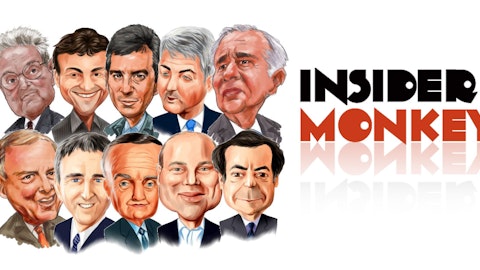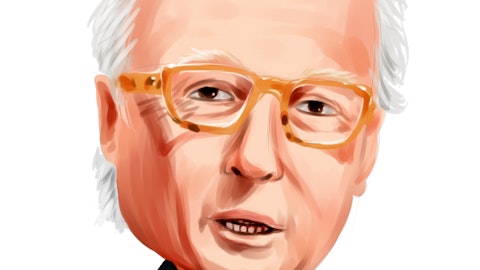There are several companies that are wholly or partly exposed to the ride sharing trend. Ride sharing has grown the traditional taxi market by several multiples due to increasing the convenience of orders by placing an app on a mobile phone, and by lowering the cost of rides by around 20%. Some ride sharing plays like Uber, are still private, others like LYFT Inc (NASDAQ: LYFT) are now public. Yet others like General Motors Company (NYSE:GM), Alphabet Inc. (NASDAQ:GOOG), and Tesla Inc (NASDAQ:TSLA) are part or potential ride sharing plays. With SEC hedge fund holding data, let’s analyze how the smart money is playing the trend and how the average investor can ‘share’ the ride.

Why do we pay any attention at all to hedge fund sentiment? Our research has shown that hedge funds’ large-cap stock picks indeed failed to beat the market between 1999 and 2016. However, we were able to identify in advance a select group of hedge fund holdings that outperformed the market by 32 percentage points since May 2014 through March 12, 2019 (see the details here). We were also able to identify in advance a select group of hedge fund holdings that’ll significantly underperform the market. We have been tracking and sharing the list of these stocks since February 2017 and they lost 27.5% through March 12, 2019. That’s why we believe hedge fund sentiment is an extremely useful indicator that investors should pay attention to.
Lyft is an investor’s first true ride sharing pure play. The company had a strong IPO, rising around 10% before falling. Some investors are a little cautious about Lyft because it’s a little like Hulu to Netflix. It isn’t exactly the leader like Uber is, and it might not be the market darling that Uber could be. Lyft might not have as much financial resources to fund self driving efforts as Uber or bigger competitors. Lyft’s financials aren’t impressive right now. The company had $2.2 billion in sales and $911 million in losses last year. According to some accounts, some hedge funds are borrowing shares of Lyft to bet against the stock such that the borrowing fee is high. According to the Wall Street Journal, Carl Icahn sold a 2.7% position in Lyft to George Soros ahead of the company’s IPO.
Although it is known for making its own cars, GM also owns around 18.6 million Class A shares of Lyft thanks to a $500 million investment made in January 2016. Some investors would like GM to sell its Lyft shares after the lockup period to buy back shares or to invest in its own automated driving division, Cruise Automation. Warren Buffett’s Berkshire Hathaway increased its stake in Q4 by 38% to 72.269,696 shares at the end of 2018.
Like General Motors, Alphabet owns some Lyft. The company made a $1 billion investment in Lyft at a $11 billion valuation in October 2017. Given where Lyft is trading now, Alphabet is in the green on its investment. Some believe Alphabet also owns around 5.5%-6.5% of Uber. Best of all, Alphabet owns its own self driving car division, Waymo, which is estimated by many analysts to be worth more than Uber itself. Boykin Curry’s Eagle Capital Management increased its stake by 13% to over 1.8 million shares at the end of Q4.
Tesla doesn’t own any Lyft shares and it isn’t in the ride sharing game just yet, but it has plans. Elon Musk recently disclosed that the Model 3 has a camera in the Model 3 rearview mirror, saying on Twitter, “It’s there for when we start competing with Uber/Lyft & people allow their car to earn money for them as part of the Tesla shared autonomy fleet. In case someone messes up your car, you can check the video.” Many elite funds are betting against Tesla given the short float of over 20%. Whether they will be right depends on how Tesla does.
Disclosure:none





